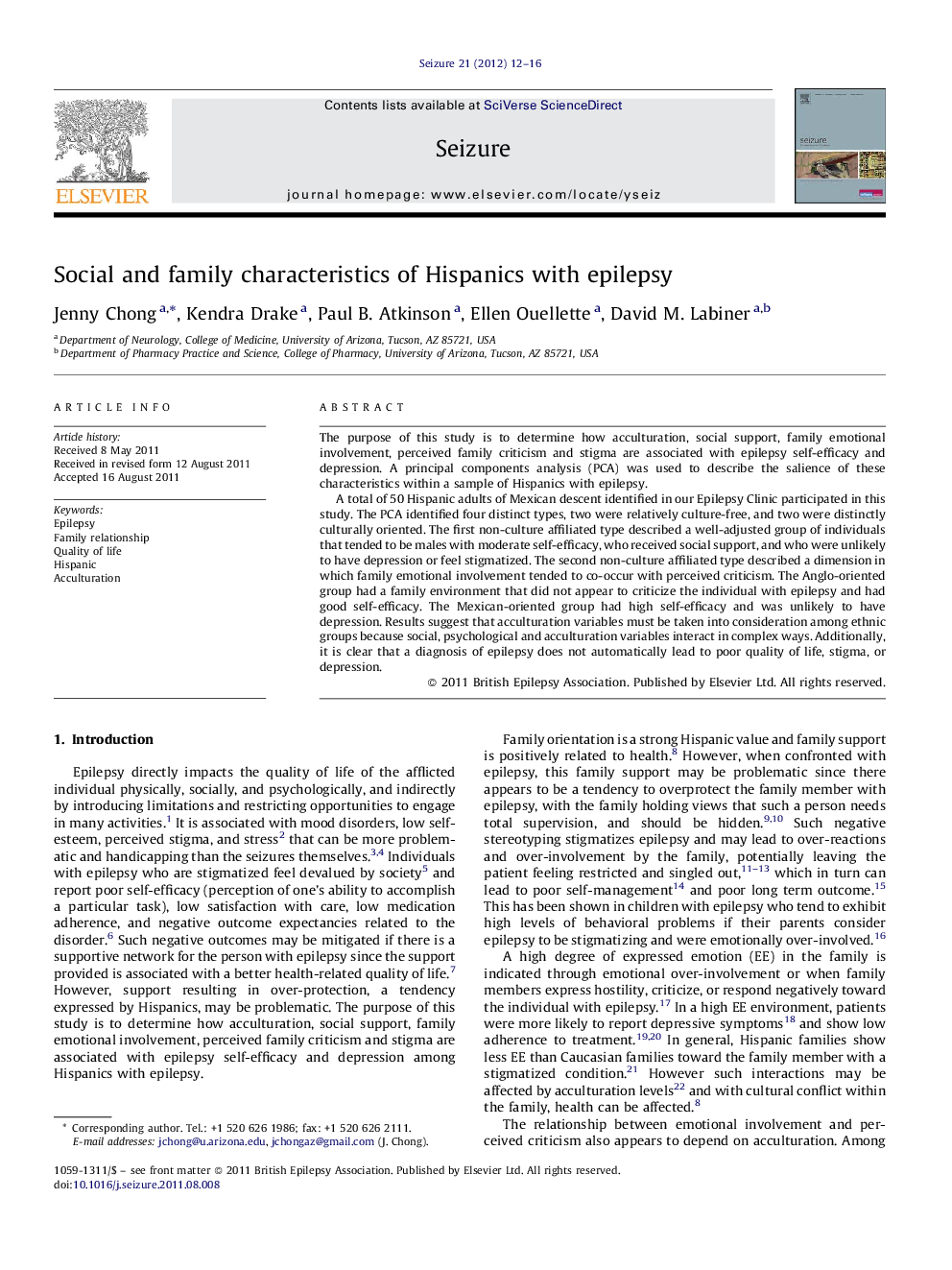| Article ID | Journal | Published Year | Pages | File Type |
|---|---|---|---|---|
| 10308969 | Seizure | 2012 | 5 Pages |
Abstract
A total of 50 Hispanic adults of Mexican descent identified in our Epilepsy Clinic participated in this study. The PCA identified four distinct types, two were relatively culture-free, and two were distinctly culturally oriented. The first non-culture affiliated type described a well-adjusted group of individuals that tended to be males with moderate self-efficacy, who received social support, and who were unlikely to have depression or feel stigmatized. The second non-culture affiliated type described a dimension in which family emotional involvement tended to co-occur with perceived criticism. The Anglo-oriented group had a family environment that did not appear to criticize the individual with epilepsy and had good self-efficacy. The Mexican-oriented group had high self-efficacy and was unlikely to have depression. Results suggest that acculturation variables must be taken into consideration among ethnic groups because social, psychological and acculturation variables interact in complex ways. Additionally, it is clear that a diagnosis of epilepsy does not automatically lead to poor quality of life, stigma, or depression.
Related Topics
Life Sciences
Neuroscience
Behavioral Neuroscience
Authors
Jenny Chong, Kendra Drake, Paul B. Atkinson, Ellen Ouellette, David M. Labiner,
